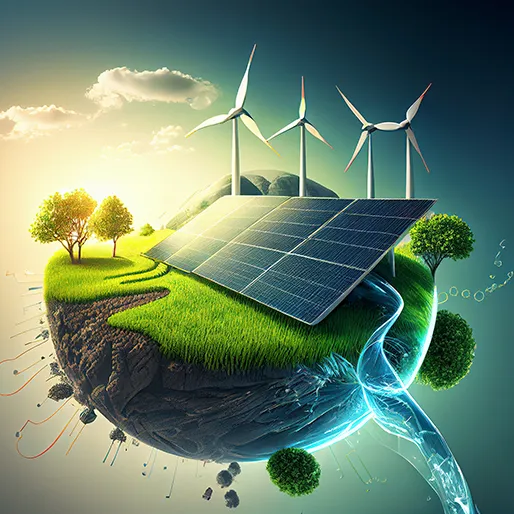Introduction
In today’s world, water scarcity is becoming a major concern due to factors such as climate change, population growth, and pollution. As a result, there is an urgent need for sustainable water management solutions to ensure a steady supply of clean water for future generations. Eco-friendly technologies are playing a crucial role in shaping a sustainable world by promoting efficient water use, reducing waste, and protecting water resources.
Challenges of Water Scarcity
Water scarcity is a pressing issue that affects millions of people globally. According to the United Nations, around 2.2 billion people lack access to safe drinking water, and by 2050, over half of the world’s population could be facing water shortages. Climate change is exacerbating this problem by causing more frequent droughts and floods, disrupting water supplies and increasing water pollution.
Eco-Friendly Technologies
Eco-friendly technologies are innovative solutions that help conserve water, reduce pollution, and promote sustainable water management practices. These technologies utilize renewable energy sources, advanced filtration systems, and smart monitoring devices to improve water efficiency and quality. Some of the key eco-friendly technologies shaping the future of water include:
1. Rainwater Harvesting Systems
Rainwater harvesting systems collect and store rainwater for various uses such as irrigation, flushing toilets, and washing clothes. By capturing rainwater runoff, these systems help reduce reliance on municipal water supplies and alleviate pressure on water resources.
2. Greywater Recycling Systems
Greywater recycling systems treat wastewater from sinks, showers, and laundry machines for reuse in non-potable applications. This reduces the demand for fresh water and lowers water bills while minimizing wastewater discharge into the environment.
3. Drip Irrigation Systems
Drip irrigation systems deliver water directly to the roots of plants, minimizing water wastage through evaporation and runoff. These systems are more efficient than traditional sprinkler systems and help conserve water in agriculture, landscaping, and gardens.
4. Water-Efficient Appliances
Water-efficient appliances such as low-flow toilets, showerheads, and dishwashers are designed to use less water without compromising performance. By replacing old appliances with water-efficient models, households can reduce water consumption and lower utility costs.
Benefits of Eco-Friendly Technologies
The adoption of eco-friendly technologies offers numerous benefits for individuals, communities, and the environment:
1. Conservation of Water Resources
By using eco-friendly technologies, we can reduce water wastage, conserve natural resources, and protect ecosystems that depend on clean water. This helps ensure a sustainable supply of water for future generations.
2. Cost Savings
Eco-friendly technologies can help lower water bills, energy costs, and maintenance expenses in the long run. Investing in water-efficient solutions can lead to significant savings for households, businesses, and governments.
3. Environmental Protection
Reducing water pollution and minimizing water usage contribute to a healthier environment with cleaner air, soil, and water. Eco-friendly technologies help mitigate the impact of human activities on the planet and promote sustainable development.
Challenges and Opportunities
While eco-friendly technologies hold great promise for water sustainability, there are challenges that need to be addressed to maximize their impact:
1. Affordability and Accessibility
Some eco-friendly technologies may be costly to implement, making them inaccessible to low-income communities and developing countries. Efforts are needed to make these technologies more affordable and widely available to ensure equitable access to clean water.
2. Education and Awareness
Many people are unaware of the benefits of eco-friendly technologies and the importance of water conservation. Education campaigns and outreach programs are essential to raise awareness about sustainable water practices and encourage behavior change.
3. Policy and Regulation
Governments play a critical role in promoting the adoption of eco-friendly technologies through policies, incentives, and regulations. Stronger environmental standards and enforcement mechanisms are needed to incentivize businesses and individuals to invest in sustainable water solutions.
Conclusion
The future of water depends on our collective efforts to adopt eco-friendly technologies and promote sustainable water management practices. By investing in innovative solutions, raising awareness about water conservation, and implementing effective policies, we can ensure a resilient and water-secure future for all. Together, we can shape a sustainable world where clean water is abundant and accessible to everyone.
#Future #Water #EcoFriendly #Technologies #Shaping #Sustainable #World


